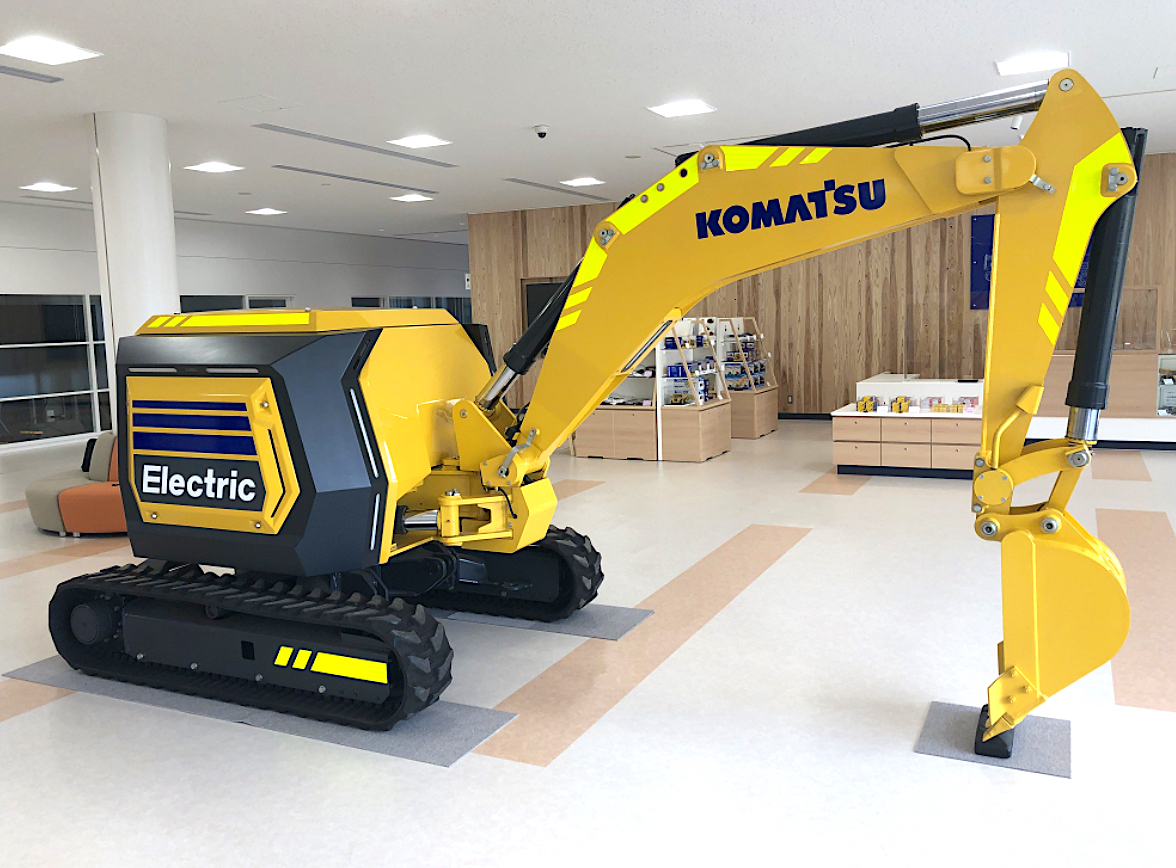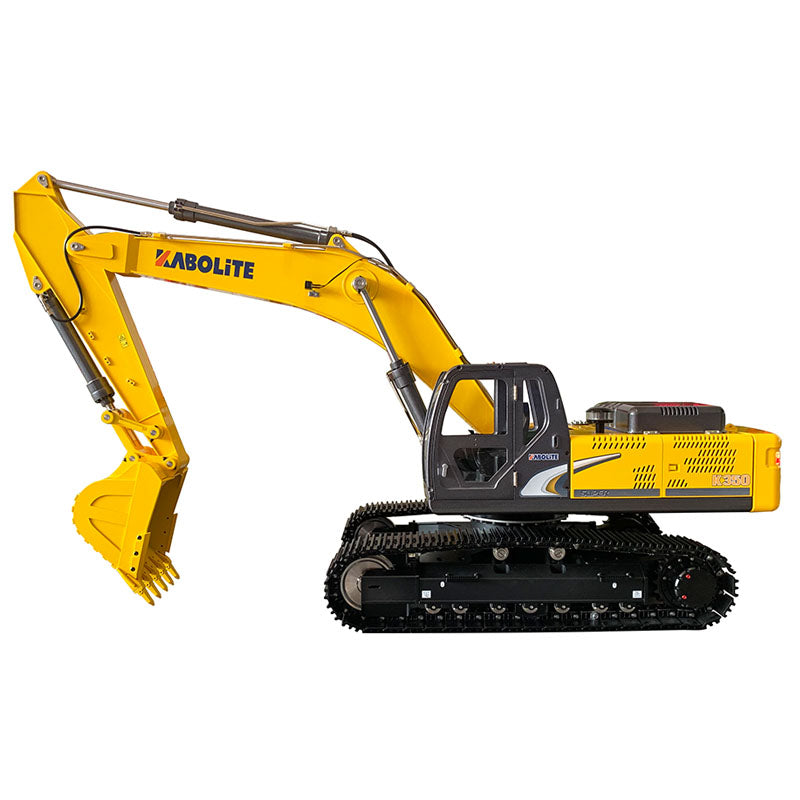Discover the Value of Excavator in Modern Construction Projects
Excavators are necessary tools in contemporary building projects. Their adaptability permits them to carry out a large range of jobs, from digging and grading to demolition and site preparation. Advanced attributes, such as hydraulic accessories and general practitioners, boost their abilities and effectiveness on work sites. As the industry advances, the importance of excavators expands even more. Understanding their role can disclose understandings into the future of construction techniques. What exists ahead for these makers?
The Convenience of Excavators in Various Projects
Although excavators are usually related to large-scale construction jobs, their adaptability permits them to be utilized in a variety of applications, from property landscape design to energy maintenance. In metropolitan setups, excavators can browse tight rooms to dig foundations for homes or install water drainage systems. Their ability to execute fragile jobs makes them suitable for landscape design jobs, where they can dig deep into for ponds or plant trees. Additionally, excavators play an essential role in energy upkeep, efficiently digging trenches for pipelines or cables without interfering with bordering locations. In farming applications, they help in land cleaning and dirt prep work. In addition, their versatility allows them to be furnished with various accessories, boosting their functionality throughout different jobs. This diverse nature of excavators not just improves different building processes however additionally demonstrates their important role in modern-day infrastructure development and maintenance.
Trick Features and Types of Excavators
The conversation on crucial features and types of excavators highlights the necessary characteristics that make these makers invaluable in building and construction. Different excavator kinds, each made for particular tasks, demonstrate their flexibility and effectiveness across different applications. rc excavator. Recognizing these features and classifications is vital for optimizing their use in contemporary building and construction jobs
Excavator Keys In Overview
Excavators play a critical role in contemporary building and construction, using adaptability and effectiveness throughout different jobs. These hefty equipment devices can be found in several types, each customized for details applications. The most usual types include crawler excavators, known for their stability on uneven terrain, and rolled excavators, which offer better movement on smooth surfaces. Tiny excavators are favored for tight rooms and small jobs, while long-reach excavators are developed for deep excavating. Furthermore, there are customized excavators, such as hydraulic excavators, which enhance power and precision. Each type features distinct capabilities, making them important for tasks ranging from digging and grading to demolition and product handling. Understanding these variations permits construction experts to choose the right excavator for their job needs.
Trick Features Explained
Understanding the vital attributes of excavators enhances their reliable application in building jobs. Excavators are characterized by their powerful hydraulic systems, which provide the needed force for excavating, lifting, and relocating products. Their articulated arms permit for a vast array of motion, helping with accurate procedures in confined spaces. In addition, the range of attachments, such as pails, grapples, and augers, broadens their versatility to fulfill different task requirements. The dimension and weight of excavators also add to their stability and ability to move on various surfaces. Developments in innovation have led to the assimilation of GPS and automation, enhancing accuracy and effectiveness in excavation jobs. These features collectively place excavators as important devices in modern building and construction.
Applications in Building and construction
Changing building websites, excavators play a pivotal function across numerous applications, ranging from domestic building tasks to large framework developments. These functional devices are geared up for tasks such as excavating structures, trenching for utilities, and website grading. Different sorts of excavators, consisting of spider, rolled, and mini excavators, supply details benefits customized to the project demands. Crawler excavators excel in rough terrains, while rolled excavators use movement on smooth surface areas. Small excavators are perfect for constrained spaces, making them popular in city settings. The effectiveness and power of excavators substantially quicken building and construction procedures, guaranteeing prompt job conclusion. Their versatility even more enhances their value, permitting building teams to tackle a diverse selection of difficulties properly.
Enhancing Effectiveness and Productivity on Task Sites
Making the most of effectiveness and efficiency on job websites is a vital objective in modern-day construction. Excavators play a pivotal function in achieving this objective by simplifying numerous jobs. Their capacity to execute numerous functions-- such as excavating, grading, and training-- decreases the need for added tools, therefore saving time and resources.Moreover, excavators enhance operations by permitting faster conclusion of jobs. With sophisticated functions like hydraulic attachments and general practitioners innovation, they can perform exact procedures that lessen errors and revamp. This precision not just enhances the top quality of work but likewise maximizes material usage, contributing to cost savings.The adaptability of excavators permits them to adapt to various site conditions, making sure that jobs proceed smoothly no matter difficulties. By integrating excavators right into building procedures, teams can substantially boost their general efficiency, resulting in timely task conclusion and enhanced success.
Safety Benefits of Making Use Of Excavators
Excavators substantially enhance safety on hop over to these guys building sites with boosted driver presence and reduced hand-operated labor dangers. By giving operators with a clear sight of their environments, excavators aid to avoid crashes and injuries. Additionally, the equipment reduces the requirement for workers to engage in harmful hand-operated tasks, further promoting a more secure workplace.
Boosted Driver Visibility
Although building and construction websites can be chaotic and filled with potential threats, boosted operator exposure plays a necessary role in making sure safety when making use of excavators. Modern excavators are developed with huge, unblocked windows and strategically placed mirrors, allowing drivers to maintain a clear sight of their surroundings (rc excavator). This improved presence is critical for spotting pedestrians, various other machinery, and different barriers, considerably minimizing the risk of mishaps. Additionally, many excavators integrate sophisticated modern technology, such as video cameras and sensors, to give operators with additional perspectives, further boosting understanding. The capability to see more plainly not only help in efficient procedure but additionally promotes a much safer workplace, making it simpler for operators to navigate complex building and construction sites without compromising safety and security requirements
Lowered Handbook Labor Threats
When manual labor is reduced with using excavators, numerous security advantages emerge, significantly improving the health of building and construction workers. Excavators reduce the physical pressure connected with hefty training and repeated tasks, properly reducing the threat of musculoskeletal injuries. By automating procedures such as excavating, grading, and relocating products, they enable employees to maintain a more secure range from prospective hazards. Furthermore, excavators are outfitted with innovative safety and security features, such as rollover protection systems and improved driver comfort designs, which better protect employees on site. The result is a significant decrease in workplace accidents and injuries, leading to increased performance and morale among building teams. Ultimately, the fostering of excavators contributes to a safer and more reliable construction environment.
Excavators in Earthmoving and Site Preparation
In modern building and construction, a substantial portion of earthmoving and website prep work tasks counts on the performance and adaptability of excavators. These devices are designed to manage numerous soil types and surface, making them indispensable for grading, excavating, and trenching tasks. Their hydraulic arms can be equipped with different accessories, such as augers and containers, enabling drivers to personalize their technique based on specific task requirements.Excavators stand out at moving large quantities of earth quickly and successfully, which speeds up the total construction timeline. They can navigate tight rooms and challenging websites where typical devices might battle, boosting efficiency. In addition, the accuracy of excavators guarantees that website prep work sticks to rigorous specs, decreasing the danger of errors that could lead to expensive rework.
The Role of Excavators in Demolition Tasks
Excavators play a vital duty in demolition tasks, as they possess the power and dexterity needed to take down frameworks successfully. Outfitted with numerous accessories such as hydraulic breakers, shears, and grapples, these machines can adapt to various demolition requirements, whether for tiny buildings or large industrial sites. Their versatility makes it possible for drivers to take on intricate tasks while keeping security and precision.In enhancement to their demolition abilities, excavators promote debris removal, ensuring that job sites continue to be well organized and risk-free. By breaking down structures into manageable items, they allow for streamlined cleaning and recycling of materials, aligning with modern sustainability efforts.Moreover, excavators can access tight rooms and browse uneven terrain, making them essential in urban demolition jobs. On the whole, their robust layout and multifunctionality make excavators an important property in the demolition stage of building, adding significantly to project timelines and performance.


Future Trends in Excavator Technology and Usage
As the construction sector progresses, advancements in excavator innovation are positioned to transform their usage and efficiency markedly. One considerable fad is the integration of automation and expert system, allowing excavators see post to operate with very little human treatment. This shift will certainly improve precision in tasks such as grading and trenching, reducing human mistake and enhancing productivity.Additionally, the rise of electrical and hybrid excavators is shaping a more sustainable building environment, decreasing carbon emissions and gas prices. Enhanced telematics systems are additionally arising, enabling real-time monitoring of equipment efficiency and upkeep needs, which can lead to much better functional performance and longer equipment lifespan.Moreover, improvements in accessory modern technology are increasing the flexibility of excavators, permitting them to execute a broader series of jobs. The combination of these fads demonstrates a future where excavators are smarter, pop over to this web-site greener, and extra versatile, eventually improving building and construction job dynamics.
Regularly Asked Inquiries
How Do Excavators Contrast to Various Other Building And Construction Machinery?
Excavators, identified by their convenience and power, master digging and earthmoving contrasted to other machinery. Their capability to perform different tasks, including lifting and demolition, makes them crucial in building and construction jobs, boosting overall efficiency.

What Is the Ordinary Life Expectancy of an Excavator?
The typical lifespan of an excavator usually ranges from 7,000 to 10,000 operating hours, depending upon maintenance, use problems, and model. Proper treatment can extend this life-span, making certain peak performance throughout its functional years.
How Are Excavators Preserved for Ideal Efficiency?
Excavators require routine maintenance for peak performance, including regular assessments, liquid checks, filter substitutes, and timely fixings. Carrying out a preventative upkeep schedule helps extend their life-span and warranties reliable operation in different building atmospheres.
What Are the Expenses Associated With Leasing vs. Acquiring an Excavator?
The prices connected with purchasing an excavator versus renting vary significantly. Renting out offers reduced upfront expenditures but can build up in time, while buying calls for a considerable preliminary investment, but supplies long-term financial savings and asset possession advantages.
What Training Is Called For to Operate an Excavator?
Operating an excavator requires specialized training, commonly including safety and security procedures, machine procedure techniques, and ecological understanding. Certification programs often mandate practical experience, allowing operators to take care of various jobs efficiently while guaranteeing conformity with market laws. The most usual types consist of crawler excavators, recognized for their stability on uneven terrain, and rolled excavators, which supply greater movement on smooth surfaces. Mini excavators are preferred for limited rooms and small projects, while long-reach excavators are made for deep excavating. Additionally, there are customized excavators, such as hydraulic excavators, which enhance power and precision. Various kinds of excavators, including spider, wheeled, and mini excavators, offer particular benefits tailored to the job demands. Crawler excavators stand out in harsh surfaces, while rolled excavators provide flexibility on paved surface areas.
Comments on “How the Double E Volvo rc excavator Revolutionizes Site Preparation and Grading”